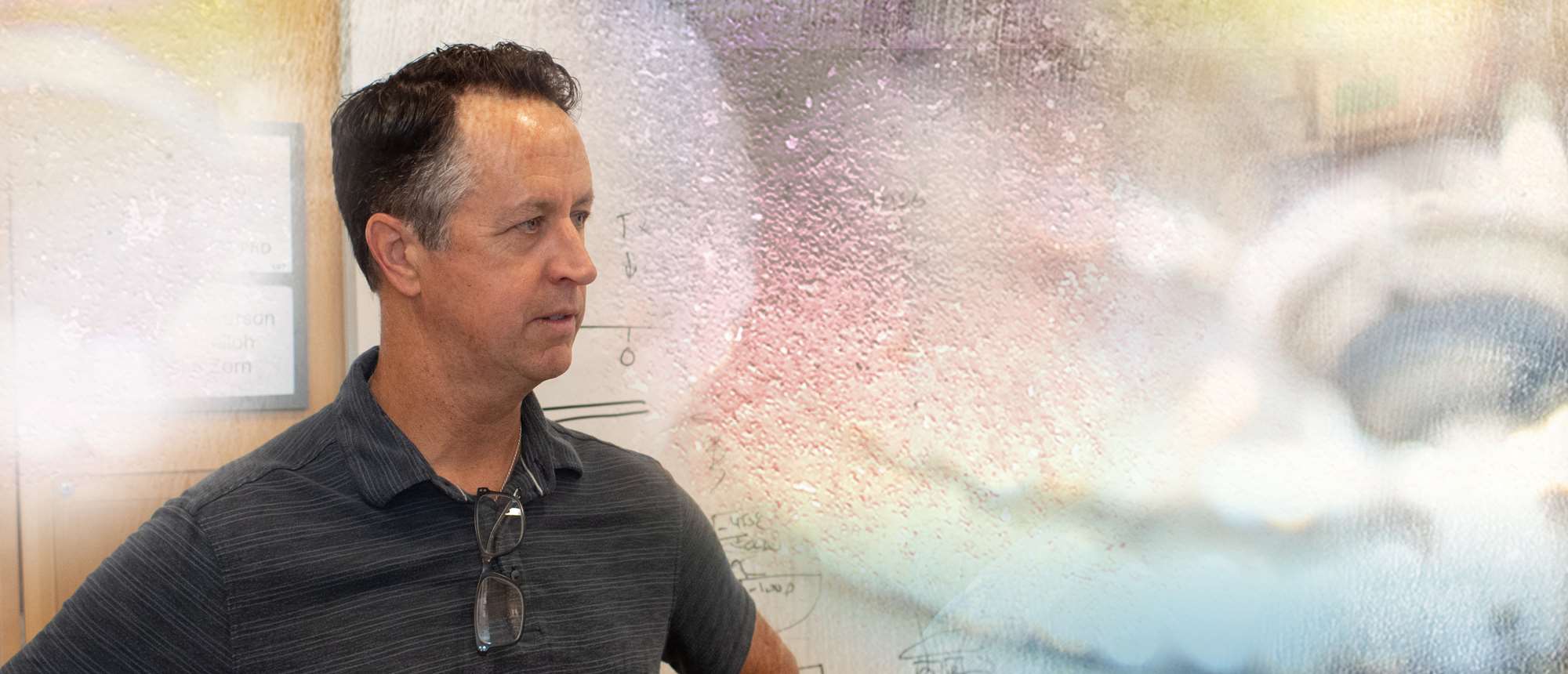'Definitely a Calling': MCW Researcher Works to Save Lives of Childhood Leukemia Patients

Most of the 2,000-2,500 children who develop pediatric leukemia annually survive, according to Michael Burke, MD, a professor in the Department of Pediatrics at the Medical College of Wisconsin (MCW).
“Although most of them can be cured and have a success story, some of them don’t,” Dr. Burke says. “It’s sad for sure. No child should have cancer, and no parent should lose a child to cancer, but those are realities.”
The majority of children who die are those with refractory leukemia, which means they didn’t respond to treatment, or those with replaced leukemia, which means they had gone into remission before the cancer came back, he explains. Improving the survival rate for children who suffer relapse through innovative treatments has become a life mission for Dr. Burke, who is leading a series of clinical trials he hopes can do just that.
“We need to do something better,” he says. “We need to try new therapies and new strategies, and that has been a big emphasis since I came to MCW 10 years ago.”
Even as he went through the interview process at MCW, Dr. Burke was busy identifying faculty to partner with as he explored his focus area, epigenetic modification with leukemia.
He learned of the work of Sridhar Rao, MD, PhD, an associate professor of pediatrics, hematology/oncology/transplantation and cell biology, neurobiology and anatomy at MCW, and associate investigator at Versiti Blood Research Institute. Dr. Rao was busy in his lab investigating the epigenetic changes of cancer cells, particularly leukemia, a hand-and-glove fit with Dr. Burke’s interests.
They soon developed a clinical trial epigenetic reprogramming study for relapse acute myeloid leukemia (AML) patients, which was funded through a seed grant from Midwest Athletes Against Childhood Cancer, Inc., known as the MACC Fund.
They enrolled three patients from Children’s Wisconsin and one from Children’s Minnesota to participate. The goal was to treat patients with two epigenetic drugs – decitabine and vorinostat – combined with traditional chemotherapy to learn about their side effects, identify the right dose and learn more about the cancer itself.
“Are there any aspects of the cancer that we can take advantage of and target with certain drugs that may affect that certain cancer biology?” Dr. Burke asks.
Doing so involved biological tests in Dr. Rao’s lab on patients who responded and didn’t respond to the new treatment.
“Did the drugs do what we thought they would, and if they didn’t, why not?” Dr. Burke explains. “Then we try to identify how we can improve the therapy for those who it did not work for and further enhance the treatment for those who it did work.”
Learning lessons from both treatment response groups during the initial epigenetic clinical trial, the researchers parlayed that knowledge into a larger trial that tested these new hypotheses. They received a larger grant to fund an international trial that included institutions in Canada, Australia and the United States, and enrolled 37 patients in that study. The findings were eventually published in the American Journal of Hematology (May 2022). Now oncologists from around the world can incorporate this novel treatment for their patients using the epigenetic drugs decitabine and vorinostat with chemotherapy.
Optimism through tragedy
While these successes and others around the world have drawn much optimism in cancer therapy, the breakthroughs don’t detract from the heartbreak that cancer causes.
“Overall, the needle is pointing up, but it’s probably not pointing up fast enough for many of these kids,” Dr. Burke says. “I keep coming back to think of the children we can save and focus on hope.”
It also doesn’t detract from the challenge of treatment itself.
“Treatment is not easy. There’s a lot of side effects. It’s very traumatic both for the child and for the family … a lot of ups and downs,” Dr. Burke says. “Kids with cancer are a select group that I was really touched by – their resilience and how committed the families were to their children.”
To get through the tough losses, Dr. Burke reminds himself of a phrase that symbolizes the important role that he, his team at MCW and other physicians across the world fill for patients.
“We treat often, we cure sometimes, but we comfort always,” he says. “That’s really the role of the physician to be comforting to the patient and families through the whole journey.”
Pieces of the puzzle
The latest generation of the clinical trials that Dr. Burke helped spur several years ago is currently underway. This iteration introduced another drug into his epigenetic treatment, which targets yet another cancer pathway called BCL-2, which is involved in triggering cell death or apoptosis.
“We’ll be able to see if this new drug is making a positive impact particularly for those patients who have that cancer pathway activated,” he says. “The ultimate treatment goal is that kids don’t relapse. That’s the pie in the sky for this trial here.”
The treatment and research, the relationships built along the way, he says, are all pieces of the larger puzzle. Each section completed saves the lives of children and gives Dr. Burke the motivation he needs to keep going.
“These kids and their families need us,” he shares. “We are meant to do this, and we are fortunate to be here for the next kid and to help them as well.”



